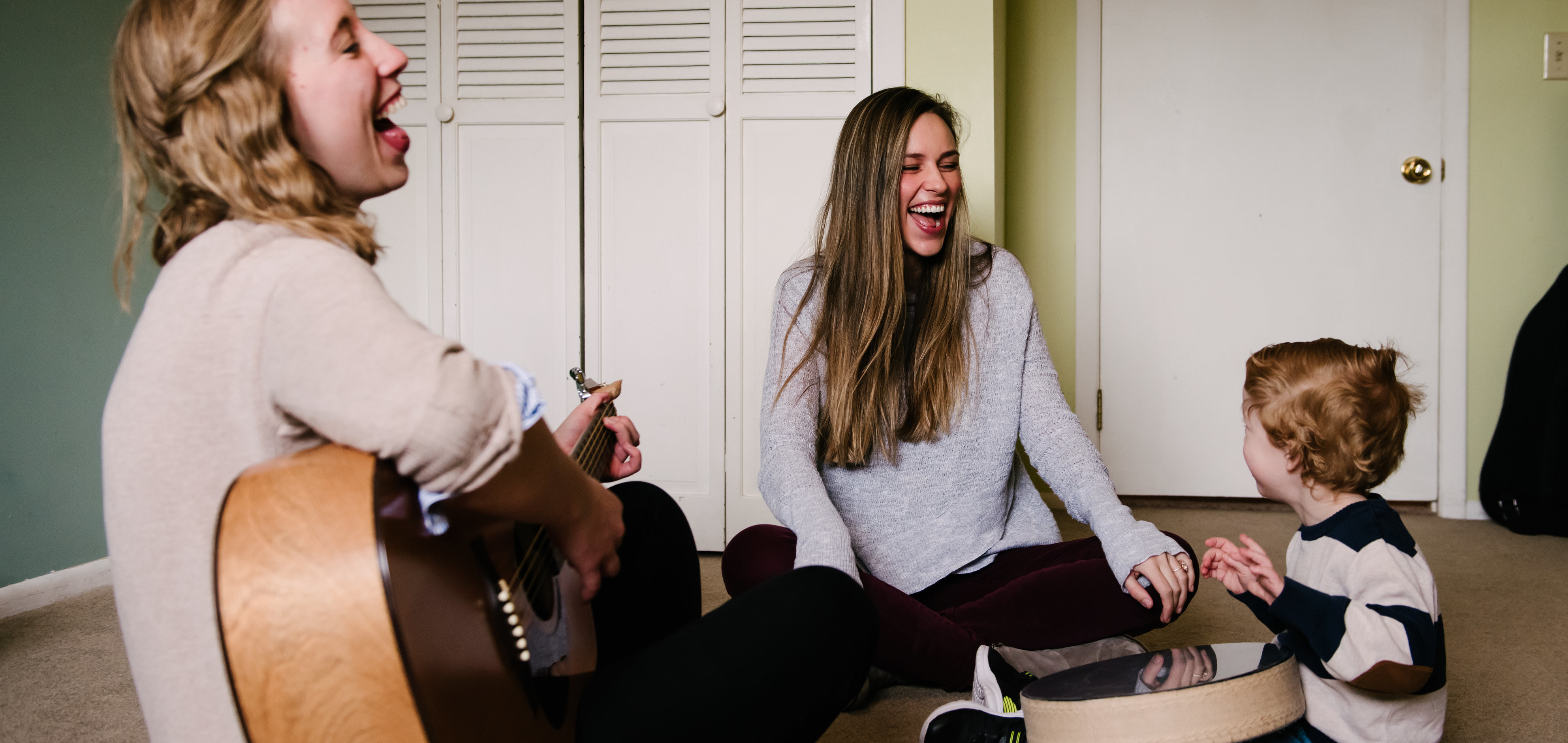The Power of Collaboration: Speech and Music Therapy
Power comes with collaboration. Speech and Music Therapy fit together beautifully! Here’s how.
Speech therapy is a well known and typically well understood approach to help children with special needs develop language. Music therapy, however, is less well known, but incredibly effective in promoting language development.
So it is only natural that two therapists would come together to bring about a powerful collaborative team!
The Speech Therapist uses a wide range of activities to promote speech and language development.
The Music Therapist uses music specifically to strengthen language, communication, and social skills through engaging music interventions.
Here are just a few of the ways music therapy can make a tremendous difference when combined with speech therapy.
Adding structure and predictability to an intervention through song.
Music Therapists improvise and create songs in the moment help the individual child. For example, if a child is working on a particular sound or word, the Music Therapist can put it into a song.
The trick with music therapy is to place the word or sound in music in a way that highlights it in a fun and anticipatory way. This anticipation can help cue the brain to promote communication.
We have seen so many kids begin to communicate when songs are brought into the mix. It is SO powerful!
Using the power of music to access speech centers in the brain.
Speech centers are found primarily on the left side of the brain, while music is processed in areas all throughout the brain. Music accesses the primary speech areas (such as Broca’s and Wernicke’s areas), while also sharing areas on the right side of the brain such as those used for singing.
A child with a speech delay may not process language correctly in the typical speech centers, but the right side that is responsible for singing may still be intact. A music therapist can carefully use music, rhythm, and melody to access these speech areas and encourage communication.
Music provides motivation to communicate and engage.
We Music Therapists consider ourselves very lucky to be the “good guys” in making therapy fun and enticing for children. What better tool to use for play, interaction, and communication than music?
The beautiful thing about having a music therapist is that we are trained in how to use music effectively to create a motivating environment for our clients. This is no easy task! Music therapists need to be aware of potential sensory difficulties, knowledge of harmony, form and structure of music, have access to a wide variety of instruments, and understand how to instruments and songs to maximize results.
A Music Therapist might bring in a kazoo to increase vocalization, a harmonica to encourage breath control, or a gathering drum to increase social awareness.
We may also put target words at strategic parts of songs and sing them in a certain way to help prime the child’s brain and then get the word out.
When a music therapist uses music effectively, most children show an increased desire and ability to communicate with others around them.
It is truly a powerful collaboration when the Speech and Music Therapist work together. In fact, you can read a little about one of our clients who experienced such success here: Speech and Music Therapy: Helping a Boy With Williams Syndrome
By the way, we offer a Free Trial Session where you can see for yourself if music therapy is the right fit for your child.
Sign up today and start seeing results!
Schedule My FREE Consultation!

